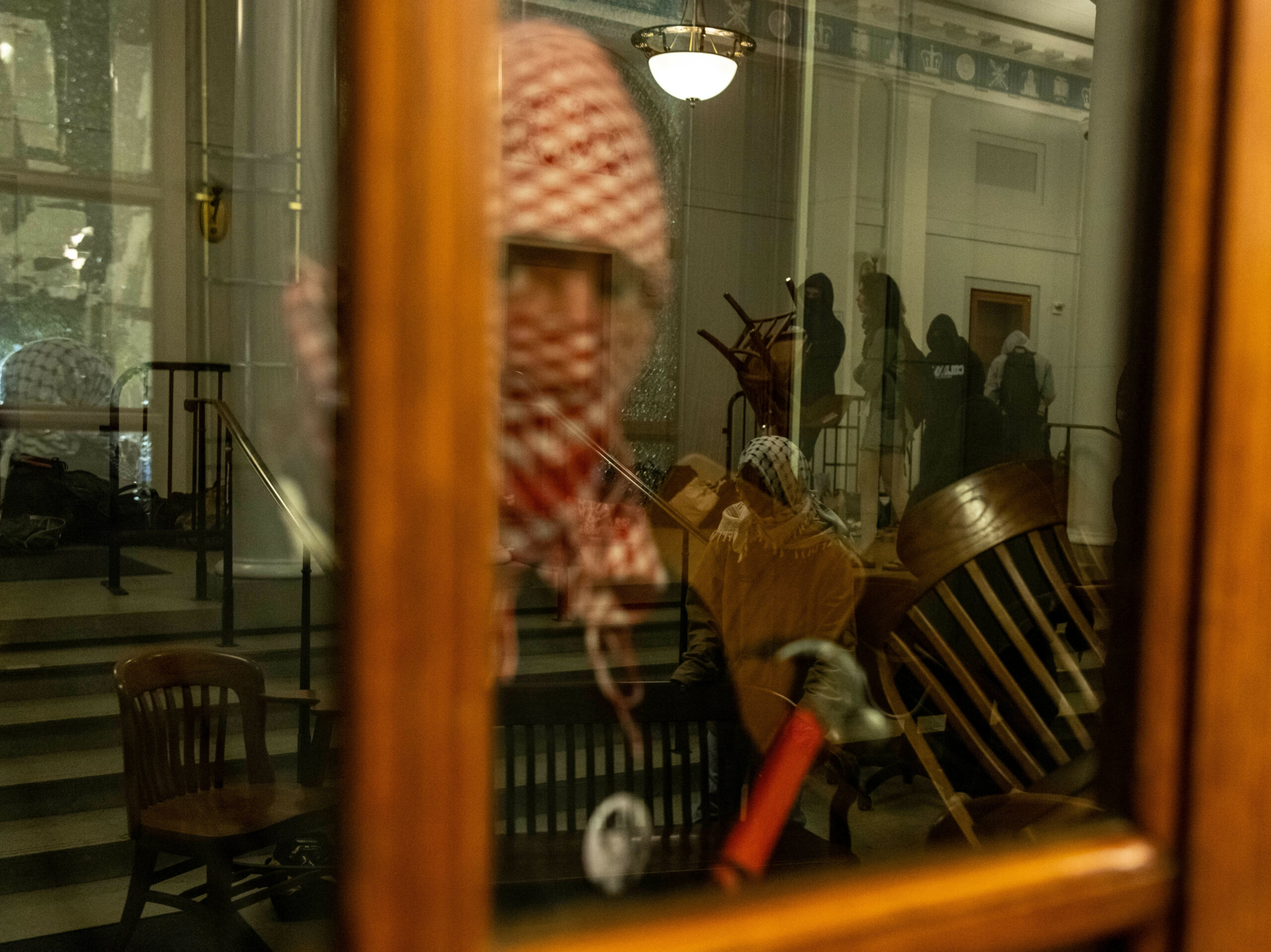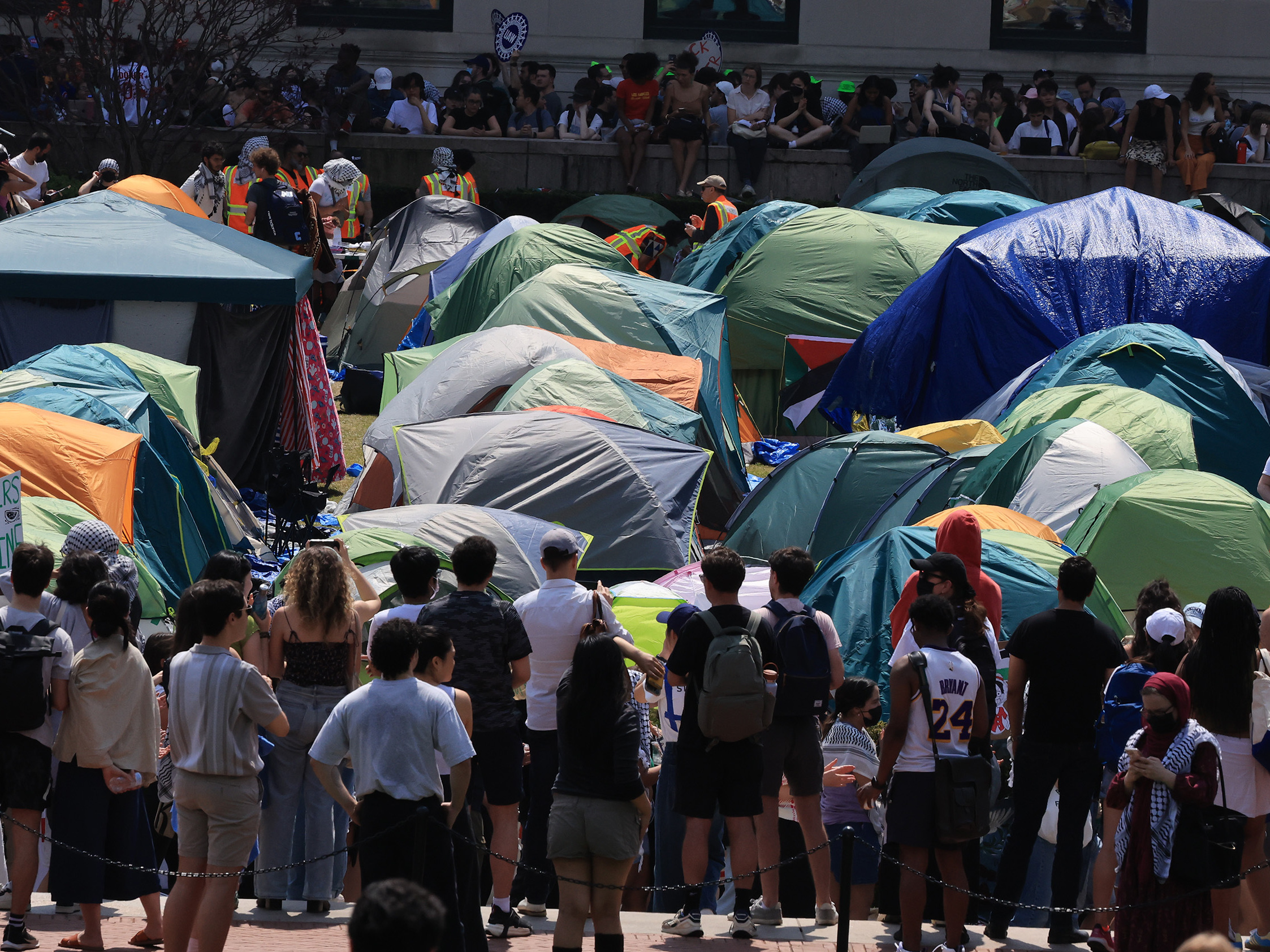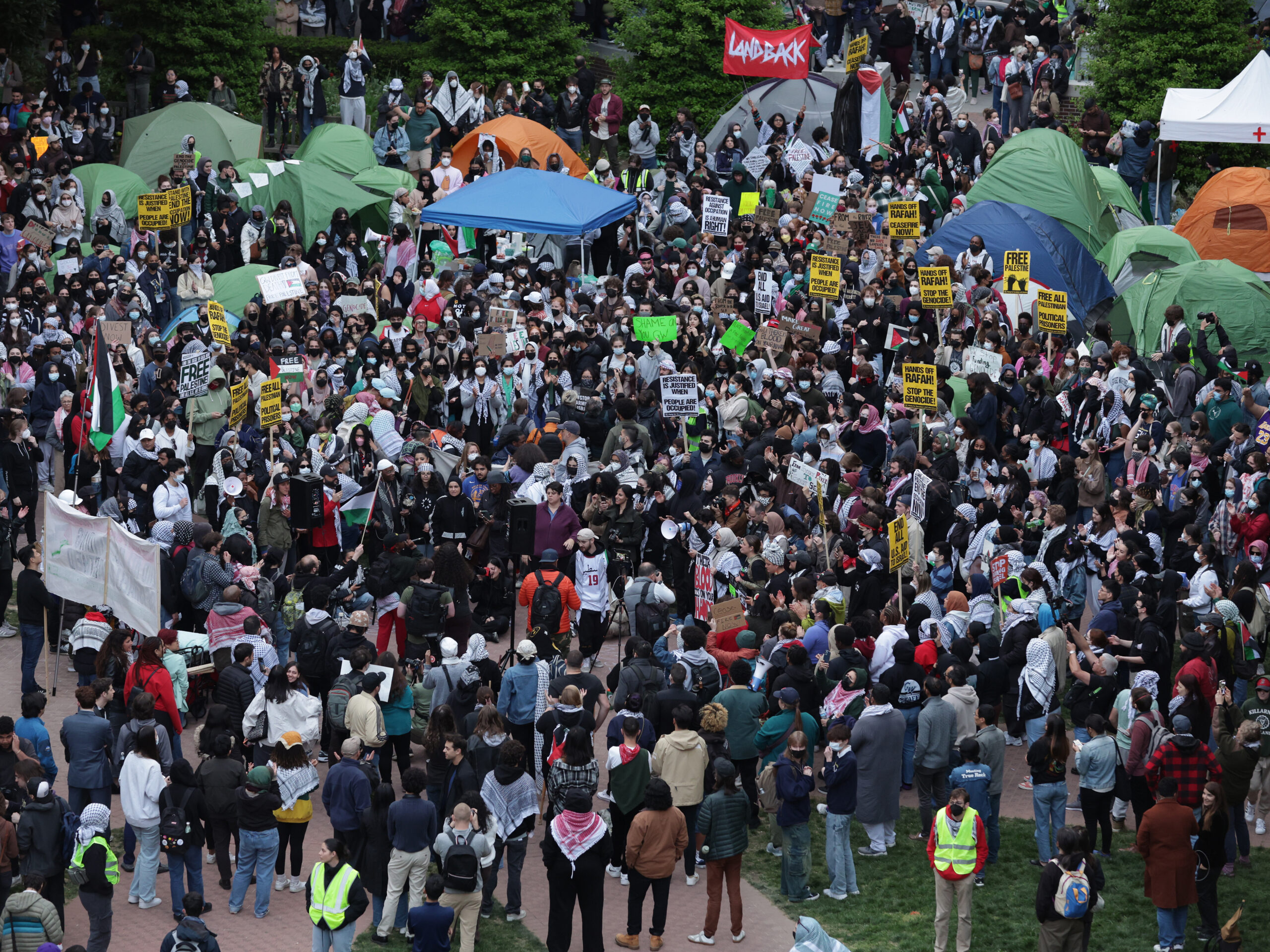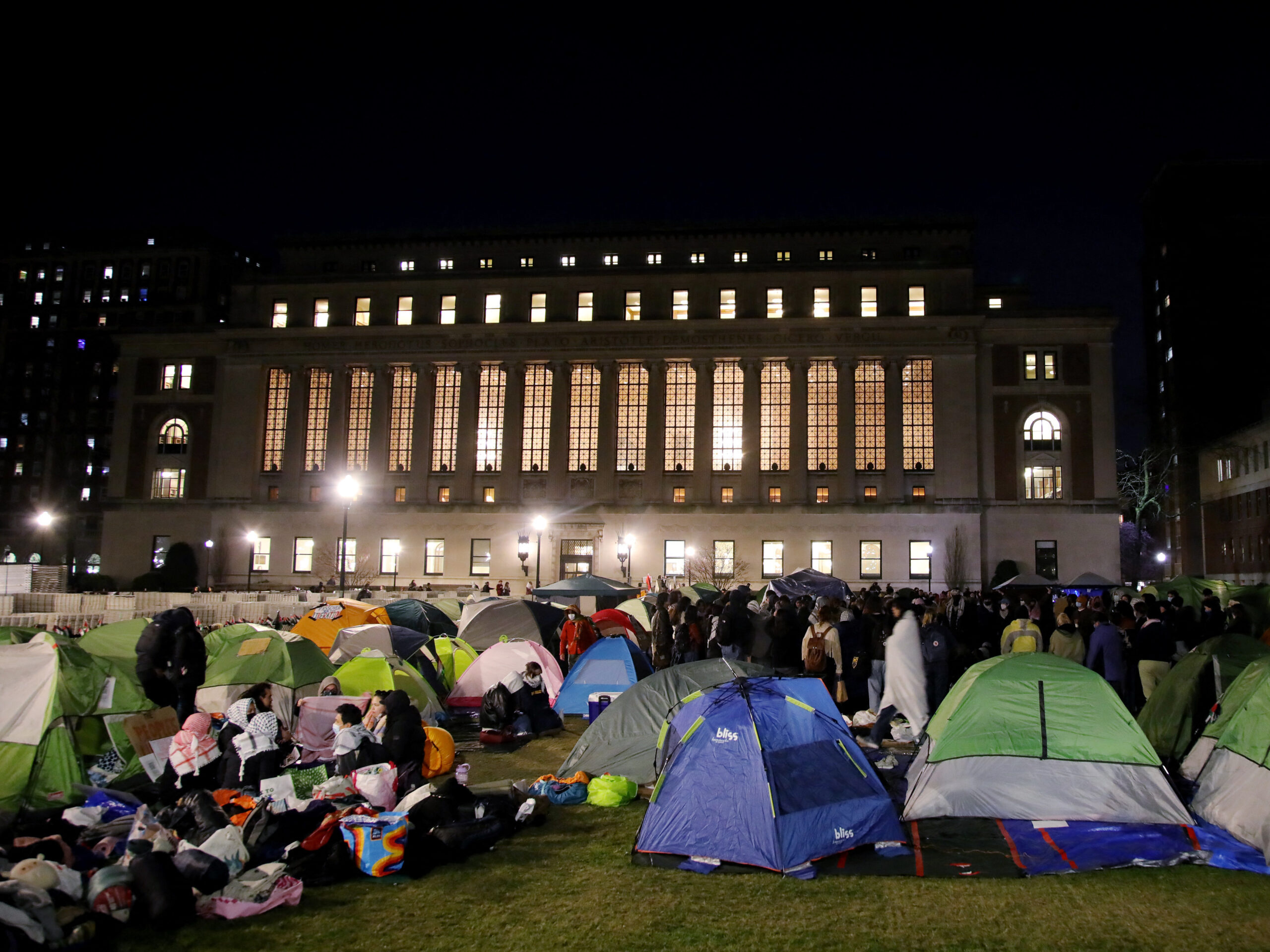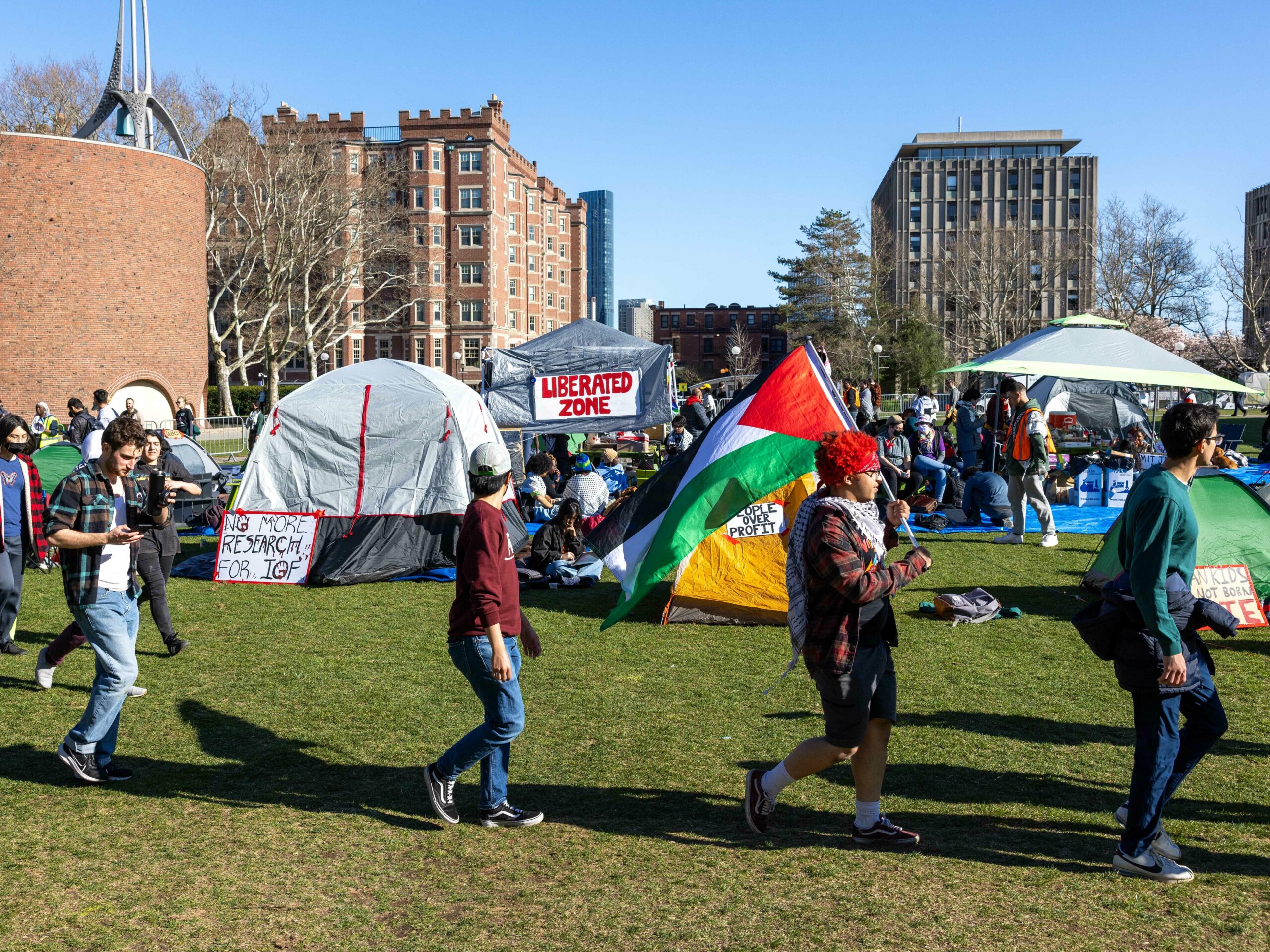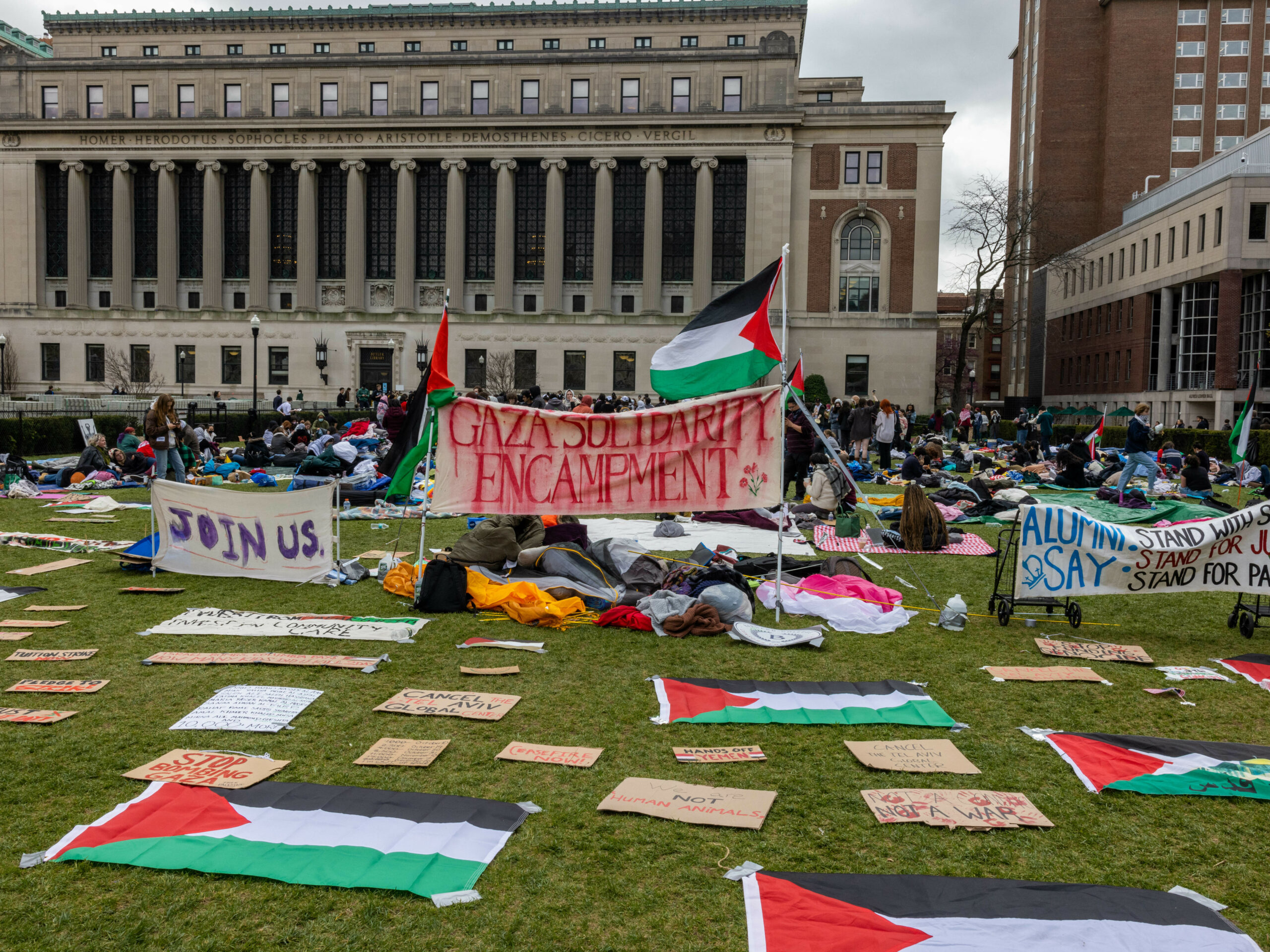Protesters occupying a central campus building at Columbia University in New York on Tuesday are being suspended and now face expulsion, as universities around the country face growing protests on their campuses, resulting in arrests in some cases.
At Columbia, protesters took over Hamilton Hall, a day after the school asked them to voluntarily disperse from an encampment set up in support of Palestinians.
Stay informed on the latest news
Sign up for WPR’s email newsletter.
In announcing the disciplinary actions, the school said on Tuesday that the protesters “have chosen to escalate to an untenable situation.”
On the other side of the U.S., students broke into the library at Portland State University in Oregon, triggering a campus-wide shutdown.
These are among the protests proliferating around the country this week, bringing standoffs with administrators and police. In the highest-profile cases, demonstrators are protesting in support of Palestinians in the war between Israel and Hamas; they’re also calling for their schools to cut investment ties and business dealings with Israeli companies.
The Israel-Hamas war has killed more than 34,000 Palestinians, according to the Gaza Ministry of Health, while Israel says some 1,200 Israelis were killed by Hamas in an assault last October. Israel says Hamas is still holding 133 hostages.
Campuses see big protests across the U.S.
In Oregon, Portland State University closed its campus on Tuesday, after demonstrators took over the school’s library. The protesters broke into the Branford Price Millar Library during the night, Oregon Public Broadcasting reports.
Multnomah County District Attorney Mike Schmidt’s office said his position is that “the actions taking place have crossed into criminal behavior, and we will prosecute.”
Earlier on Tuesday at the University of North Carolina at Chapel Hill, police arrested demonstrators who refused to shut down a “Gaza Solidarity Encampment” protest that began at the Polk Place quad on campus Friday.
Police detained some 30 protesters and moved them elsewhere on campus, according to student newspaper The Daily Tar Heel, which says six people in the group were arrested. Video posted on Instagram by the school’s chapter of Students for Justice in Palestine showed UNC police chief Brian James informing protesters that they were trespassing, as they chanted, “We will not stop, we will not rest.”
UNC interim Chancellor Lee Roberts and Provost Christopher Clemens sent a letter early Tuesday ordering protesters to dismantle the camp and leave, threatening arrests and potential expulsion.
On Monday, police arrested nearly 80 people protesting in support of Palestinians at the University of Texas at Austin after demonstrators set up an encampment on the south lawn, according to member station KUT.
“Police and troopers in riot gear surrounded the protesters and made arrests,” KUT reports.
UT Austin saysThe Palestine Solidarity Committee in Austin, a group organizing protests, condemned school president Jay Hartzell’s administration for “yet again calling police to violently suppress students” — a reference to dozens of arrests made last Wednesday.
Along with its demands related to Israel and the Palestinians, the group says Hartzell — who has Gov. Greg Abbott’s support — must resign. The group says it plans to hold another demonstration on Wednesday at noon, local time.
Northwestern agreement deescalates protest
Dozens of tents set up by protesters at Northwestern University in Evanston, Ill., have been removed from the school’s Deering Meadow, after a pro-Palestinian coalition agreed to a deal with school leaders.
Under the agreement, the Northwestern Divestment Coalition can continue to organize limited protests through at least June 1. Protesters who aren’t affiliated with the school are also barred from participating.
In return, the school agreed to transparency measures around its investments, to give support to Middle Eastern and Muslim students, and to fund the “full cost of attendance for five Palestinian undergraduates” to attend the school for four years, along with two visiting Palestinian faculty for two years.
The university also said it will look to add more support for Jewish students. It called recent reports of antisemitic and anti-Muslim/Palestinian incidents “unacceptable.”
The school saidColumbia and protesters hit a new impasse on Monday
Students entered Hamilton Hall early Tuesday morning, chained and barricaded its doors and have been using a rope system to get supplies from supporters, reported WKCR, the university radio station.
Outside, a crowd cheered as the facade was draped with signs reading “Intifada” and “Hind’s Hall” — the latter a reference to Hind Rajab, a young Palestinian girl who was killed in Gaza in January.
The university is now under what amounts to a lockdown of the campus in Manhattan’s Morningside Heights, with access restricted to essential-service employees and students who live in residential halls on the campus.
“This building has now been liberated,” an Instagram account affiliated with the student group Columbia University Apartheid Divest announced as it posted an image of Hamilton Hall, echoing language used during a 1968 protest.
Columbia students protesting racism against Black people and the Vietnam War were occupying Hamilton Hall and other buildings exactly 56 years ago — on April 30, 1968 — when police violently cleared the campus. More than 700 people were arrested and almost 150 people were injured.
The New York Police Department says it has officers stationed outside the university, but not on school grounds.
Tuesday’s campus shutdown was mirrored by one at Barnard College, which is closely affiliated with Columbia.
Columbia’s leadership has set several deadlines as it seeks to reach an agreement with demonstrators to end the encampment, as the school said it violates school policies and is a threat to campus safety, a disturbance to Jewish students and students trying to study and sleep.
Columbia administrators and protesters held discussions on Monday, but they failed to reach a breakthrough. The school also began suspending students. Some protesters then left the encampment around 1 a.m. Tuesday and moved into Hamilton Hall, an academic building.
Columbia seeks ways to hold graduation ceremony
Columbia’s last day of classes for the spring semester was Monday, marking the start of “reading week,” in which students traditionally prepare for looming final exams. Those exams are currently set to begin on Friday, with commencement planned for May 15.
Columbia President Minouche Shafik said on MondayThe president also said the school was prepared to allow demonstrations to resume after exams and commencement. But, Shafik added, protesters would need to submit an application at least two days in advance, and protests would be allowed only in designated areas.
Shafik said Columbia has supported protests and vigils that happened earlier in the year, as they were peaceful and didn’t disturb campus operations.
But she added the encampment has caused an “unwelcoming environment” and “hostile environment” for Jewish students, and violates Title VI of the Civil Rights Act of 1964, which outlaws discrimination at schools that receive federal funding.
“Antisemitic language and actions are unacceptable and calls for violence are simply abhorrent,” she said. “I know that many of our Jewish students, and other students as well, have found the atmosphere intolerable in recent weeks. Many have left campus, and that is a tragedy. To those students and their families, I want to say to you clearly: You are a valued part of the Columbia community. This is your campus too.”
Shafik, who has been under fire for her handling of the protests, said she is committed to keeping community members physically safe and shielding them from harassment and discrimination, while allowing them to freely speak, which must mean respecting others’ right to do so as well.
“One group’s rights to express their views cannot come at the expense of another group’s right to speak, teach, and learn,” she said.
9(MDAyMjQ1NTA4MDEyMjU5MTk3OTdlZmMzMQ004))
© Copyright 2024 by NPR. To see more, visit https://www.npr.org.9(MDAyMjQ1NTA4MDEyMjU5MTk3OTdlZmMzMQ004))

